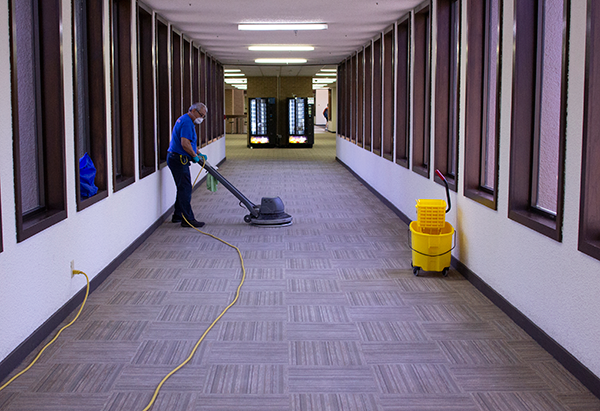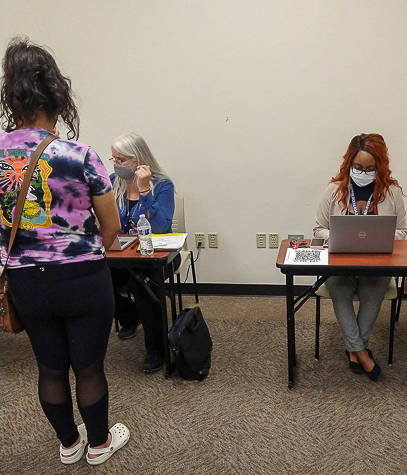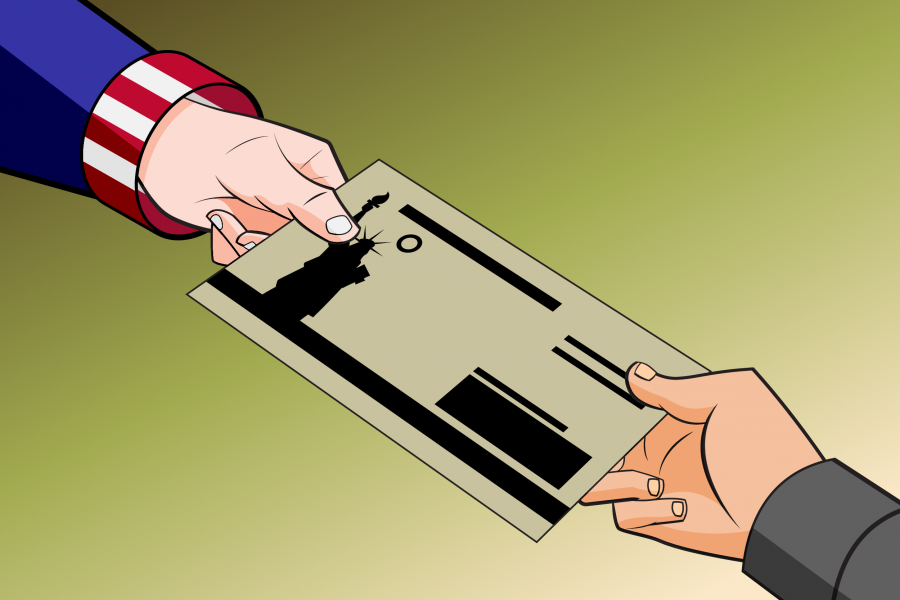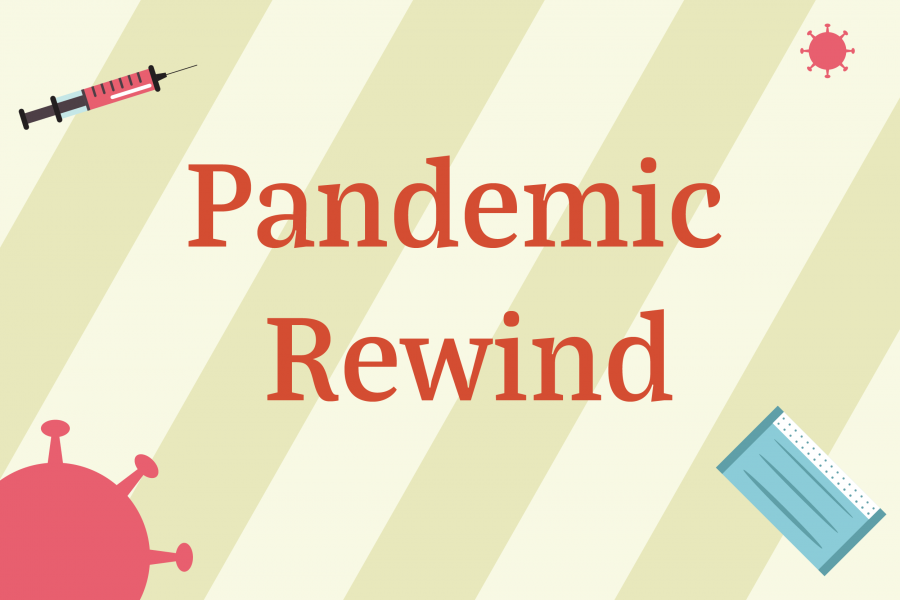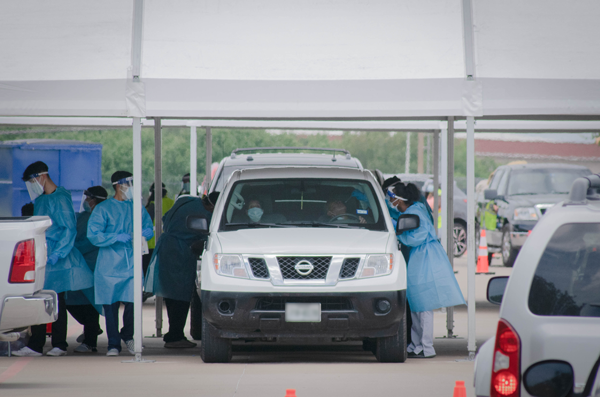See our timeline covering the disease here.
By Lindsey Craft and Eson Fellers
@TheEtCetera
Colleges around the nation have extended their spring breaks and switched to online-only classes due to the rising number of coronavirus cases. However, the Dallas County Community College District has delayed making an announcement until spring break amid concerns regarding students’ access to technology.
“I am aware that some of you may have been wondering why DCCCD hasn’t closed its campuses like other institutions across the country,” Chancellor Joe May wrote in a districtwide email. “Such a consideration is not one to take lightly. … Many of our students are unfamiliar with fully online classes and may lack sufficient technology at home. They rely on face-to-face instruction and campus-based Wi-Fi to complete assignments.”
Because of this, May said he will be carefully reviewing options for how DCCCD colleges can continue to provide “high-quality, easily accessible educational opportunities” for all students.
“If we rush before we are certain we can best serve our students under these unusual circumstances, some may choose to opt-out of college entirely and jeopardize their future,” he said.
There have been no COVID-19 cases reported at any district campuses, but the DCCCD did send out a tweet stating that all district-sponsored and campus events with more than 25 people would be postponed or rescheduled. The Faculty Dance Concert was canceled and the baseball season was suspended. This has sparked confusion as there have been no changes made to classes, even though some 8-week history classes after spring break could have as many as 80 students.
Texas Gov. Greg Abbott declared a state of emergency on Friday that will mobilize state and federal resources to fight COVID-19. Abbot said drive-thru testing will start in San Antonio, with others to follow in Houston, Austin and Dallas.
A Centers for Disease Control and Prevention report shows the total number of cases in the U.S. has now risen to 1,215, and a report by Dallas County Health and Human Services shows that eight cases have been confirmed in Dallas County.
DCCCD emergency manager Brigham Wilcoxson, who worked in the Dallas County medical examiner’s office during the AIDS epidemic, said the district is following the direction of Dallas County Health and Human Services.
The Dallas Department of Health and Human Services “gave us a heads up a while back that the closing of schools was a possibility,” Wilcoxson said. “If that did happen, it would be likely that we would be looking at two weeks, which seems to pretty much be the practice nationwide at this point for those that have closed.”
Precautions and preventative measurements have been taken campuswide to ensure the safety of every member at Eastfield Employees are considering how their departments will be impacted by a possible closure.
Health center nurse Nancy Abdo said if a student or faculty member were to come in with coronavirus symptoms, she would have to file a CDC report, which checks travel history, contact history, temperature, etc.
“If we suspect [they are positive] then we will isolate that person and we won’t be letting other people into the clinic or the surrounding area,” Abdo said. “We will then be contacting Dallas Health and Human Services to send them for testing.”
Abdo said many students have come to her asking for advice on how to avoid being infected. She said students can take precautions by washing their hands thoroughly throughout the day, not touching their faces and keeping a 6-foot distance from someone who is sick.
Abdo also said that if a person falls ill, they need to take preventative measures from spreading disease.
“Self-quarantine and contacting your medical provider would be what I recommend,” she said. “Most people are going to have mild symptoms. It’s people who have some sort of underlying condition who are going to be affected the most.”
According to a study conducted by the China Centre for Disease Control and Prevention, 80.9 percent of coronavirus infections are mild, 13.8 percent require hospitalization and 4.7 percent need to be placed in intensive care.
Abdo said there is no reason for panic.
“My biggest concern is people getting information that’s not reliable,” she said. “The reliable sources are the CDC, the Texas State Department of Health Services and Dallas County Health and Human Services.
Student Services
Academic adviser Ashley Kimble is curious to see how things would work if the district moved to an online model. She said accessibility would only be through email, based on the software they have access to.
“I don’t anticipate advising will have to be out of the office,” she said. “I don’t think we’re going to be at that point, but hearing some of the news and other campuses [switching to online only], it sounds like it may go to that.”
In the library, Executive Dean Karla Greer said the tutoring center is now looking for the best way to offer its services online in case the campus is closed after spring break.
“That is a concern because we don’t have something in place that we’ve been using already,” Greer said. “We’ve had email tutoring, but not the synchronous type tutor.”
Lindsey Bartlett, who works with library and tutoring services, said a campus shutdown could affect students’ abilities to use computers provided in the library, which is a big part of the services the library provides. Most days the library is full, and computers are in use throughout the day.
“We do have a tutoring website that offers some video resources,” Barlett said. “But we would love to be able to still let students get in touch with a person if they have some questions and need some help from tutors.”
One part-time librarian, Alysa Irvin, also expressed concerns about how a campus shutdown could affect her job and pay.
“I’m not sure if they do a campus shutdown, if it just means no classes or if they will actually close the library and the administrative offices. If they do close the administrative offices of the library, then I can’t work at all,” Irvin said. “If I can’t come to work, I don’t get paid. And unfortunately, that means bad things for my bills.”
Faculty
Biology instructor Joseph Malaer, who is working on his doctorate cell biology, microbiology and immunology, said that while experts in the field advise we take the disease seriously, it’s also important to stay rational.
“I think that it is going to spread, but I think the goal is to minimize how quickly it spreads,” he said. “The concern is that we will overburden our health care system if too many people get ill too quickly.”
Malaer has been implementing the knowledge we have right now and some of the different components of the new coronavirus into his course material.
“This is a great time to talk about why alcohol-based disinfectants can actually inhibit the coronavirus,” Malaer said. “Same thing with our chapter on epidemiology. These are the terms you’re hearing right now whenever we talk about the virus. I’m trying to pull as many examples from this current epidemic as possible.”
Guitar instructor Eddie Healy is concerned that hands-on disciplines like his will have a tougher time making a change to an online environment.
“There is a great deal of nuance to musical instruction that is best experienced by both teacher and student in person,” Healy said. “So, at the same time that it is possible to continue to instruct the students through those modalities, it is not ideal for the musical discipline.”
He said the overreaction regarding the disease is disconcerting.
“I think we must be conscious and conscientious about the prevention of spreading,” Healy said. “But we should also be calm and practical about how we make adjustments to our routines in order to do so.”
Johnnie Bellamy, executive dean of Career Technologies including automotive and welding, said all faculty in the department have had a long-term presence on Blackboard and have prepared for the possibility that they may have to transition to online learning.
“The automotive technology program has an online component that they use already, so that would be able to continue,” Bellamy said. “We’d hope that anything of this nature would not last for an entire semester, so the students could still keep up with their lecture part online. Then, as soon as the college was back together, they could do their hands-on work in the classroom.”
Subway
Cyndi Pittman is the co-owner of the Subway at Eastfield, and her daughter owns the Subway at Mountain View. She said her family is concerned about how a possible district shutdown would impact them.
“We are going to do our best just like everybody else to keep things sanitized,” Pittman said. “We’re a public place, we have lots of people and we don’t want to close down. We don’t want the campus to close down. This is our livelihood.”
Pittman has implemented precautionary measures to ensure the area stays clean and is trying to eliminate possible hazards.
“In the food service industry, we have to be very careful,” she said. “We’re planning on sanitizing all public areas, including card machines, every hour.”
Employees are expected to wash their hands any time they are away from their regular stations, and there is a temporary suspension on the use of privately owned cups being used at the drink station as well as drink refills.
Monica Figueroa, Natalia Montoya, Sydney Williams and Skye Seipp contributed to this report.

